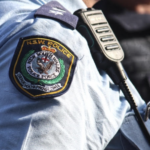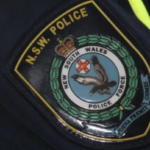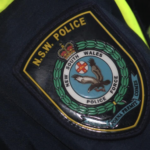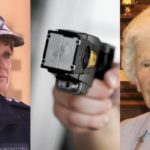UK Police Officer Stood Down for Pointing Taser at Elderly Woman

While the use of tasers by police officers comes under public scrutiny in New South Wales – with several confirmed incidents of mentally ill persons being fatally wounded as a result of being tasered, a 95-year old woman being fatally tasered, and children as young as 12-years old being shot with the devices, a police officer in the UK has been stood down for pointing a taser at an already-restrained elderly woman.
The UK incident
The incident involved a 90-year old black woman in her own home at Peckham in south-east London on 9 May 2023.
According to reports, the woman had already been restrained in a chair with her arms restrained behind her back and a mesh spit hood over her face when an officer belonging to London’s Metropolitan Police Unit pointed a taser at her.
Top brass within the Met Police have acted swiftly. They have stood down the officer and banned him from using a taser.
The incident is now under investigation.
Transparency and Independence
The Independent Office for Police Conduct is now investigating. Police have also admitted they received a complaint about the use of force, and injuries sustained by the woman while she was handcuffed.
Five other officers have been placed on restricted duties so they have no contact with the public while the investigation is underway.
Spokesperson for London’s Metropolitan Police have said that the woman was distressed. She was not arrested, and was instead transported to hospital.
It’s another grim example of police overreach, but the way that is being handled is in stark contrast to the way a similar incident involving a 95-year old dementia patient who was tasered by a NSW Police officer, causing injuries which led to her death, is being handled by the NSW Police Chief here in New South Wales.
Met Police have allowed family members to review the footage from body cameras worn by officers at the time of the incident.
Here in New South Wales – the body cam footage (tasers also produce footage when they are discharged) is firmly under wraps, protected from public view, and the NSW Police Chief Karen Web has herself admitted that she won’t be looking at it.
NSW Police’s typical ‘closed ranks’ approach
Further – the UK incident was escalated immediately to the Independent Office for Police Conduct. Here, the incident involving Clare Nowland is being investigated internally.
Also in contrast is the Met Police’s transparency about the issue. In New South Wales, initial police statements were vague, saying only that the 95-year-old was injured during an “interaction with police”.
NSW Police commissioner Karen Webb didn’t actually front the media until four days after the incident – by the time the mainstream media had definitely got hold of the story and social media was going wild. Ms Webb went on to justify her silence and the vagueness of police media releases as a deliberate act borne out of “concern for Clare Nowland’s family.”
Since then, many have called BS on all of it. Because while the officers involved deserve due process, and the family deserves consideration, the wider community also deserves real answers.
Ms Webb’s lack of strong leadership in the face of such a serious issue is another disappointing moment in her tenure. In some circles, her silence – what she considers ‘neutrality’ – is being considered as complicitness in a system that continuously accepts and allows police officers to “shoot first” and ask questions later.
The basic question most of us still want to know the answer to is – why couldn’t this have been handled differently?
Use of Taser protocols in NSW
Exactly what kind of circumstances could possibly justify a police officer to taser a frail 95-year old woman, causing her to fall and sustain head injuries, when she was by all accounts “ moving towards officers slowly,” assisted by a walking frame, even though armed with a steak knife?
Also of concern is that several other trained medical professionals including the dementia care facility staff and paramedics were on the scene as is the fact that the NSW Police Use of Taser protocols (page 23) state that a taser should not be used – unless ‘exceptional circumstances’ exist – on an elderly or disabled person.
Exceptional circumstances are defined as “circumstances that would cause a reasonable person to believe that prompt and unusual action is necessary to prevent actual bodily harm to self or others”.
The closed ranks around the entire issue are so typical of the NSW Police Force which frequently seems to forget that it has a duty to “serve and protect” the communities it serves, and further, that it is funded by taxpayer dollars. Taxpayers who expect better.
Clare Nowland died as a result of injuries she sustained in a fall after being tasered and there are now calls for the police officer who pulled the trigger to face additional charges, or for the charges against him (recklessly causing grievous bodily harm), to be upgraded.
Impact of the increasing militarisation of the NSW Police Force
The fact is we live in a time when mental health issues are on the rise and it’s an acknowledged fact that police don’t have the appropriate skills and training to be first responders, and yet little to nothing is being done about that.
We’re also living in a time where police are routinely heavily armed with both ‘lethal’ and ‘non-lethal’ weapons, mostly dressed in a militarized style.
Clearly the two don’t mix well – too regularly there are stories of police using force in situations which require compassion and an understanding of mental health.
Time and again the statistics show that no matter how heavily armed police are, it doesn’t make communities safer.
“The Weapons Effect”
One of the reasons for that is the basic psychology of weaponry – it’s questionable whether carrying a weapon would boost the confidence of the person carrying it, but a lot of studies have shown that weapons – in particular tasers and guns – do exacerbate fear and often lead to escalated tension.
What’s more, studies suggest the mere presence of a gun can potentially increase aggressive thoughts and perceptions of hostility – this is known as ‘The Weapons Effect.’
We also need to ask whether an over-reliance on weaponry has meant that police officers are losing their communication skills – the ability to connect and negotiate. And while that’s not easy to answer, we have to remember that not all countries around the world have police officers who routinely carry weapons. In fact 19 don’t – the UK is one of them, and so is New Zealand.







